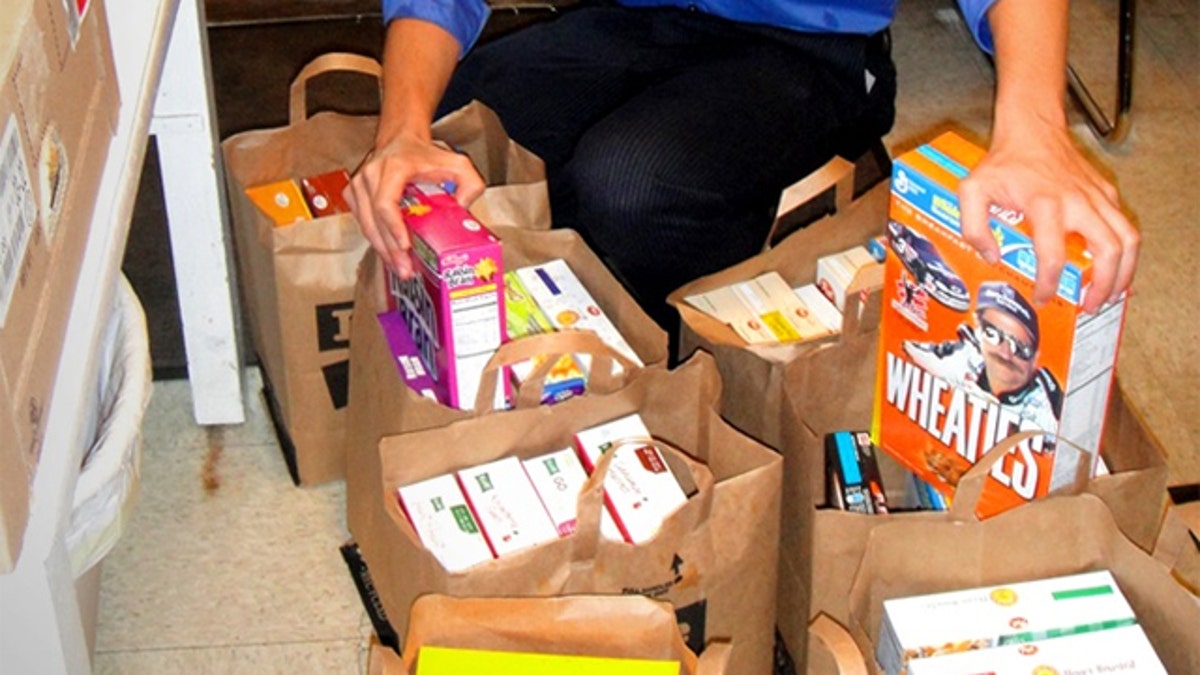
(AP)
Whether it’s a hurricane or a broken leg, stockpiling food will ensure that you and your family are well prepared in case of emergency. Effective stockpiling requires preparation, prudence and forward thinking. Knowing which foods to buy and which to ignore will allow you to maximize your food supply during an emergency situation. It may seem like a drastic measure, but if you live in an area prone to heavy snow, floods or other natural disasters, stockpiling food is a responsible and important measure. Here are some tips to help ensure that you and your family well supplied for any situation.
Essential Foods
During an emergency, you may need to react quickly to a stressful situation or physically exert yourself more than usual, so nourishing your body with high-calorie foods may be essential. Peanut butter is the perfect stockpiling food as it is high in calories, fats and protein, has a long shelf life and doesn’t require refrigeration. A good stockpile will include plenty of food that involves little or no preparation, such as canned soups, chili, nuts, fruits and vegetables. It’s also crucial to keep a large supply of clean bottled water. In a stressful situation, people can often take comfort in some of their favorite foods, so choose the foods you and your family enjoy whenever possible.
Quantities
Depending on the situation, you may be forced to rely on your stockpile for days, weeks or even months, so it’s crucial to store enough food to tide your over. Try devising a set meal plan for one week and list the ingredients and quantities necessary. Then, multiply these quantities by four, for a month’s supply, or eight for a two-month stockpile. A disaster may strike while you have a visitor, so always be sure to keep extra supplies.
Of course, purchasing such large quantities of food can be expensive. That’s why it’s best to build your stockpile over time, purchase foods with a long shelf life, and always look out for sales.
Store Properly
Create a permanent storage space in a cool and dry part of the house. Basements are usually great areas to house a stockpile, though you may wish to choose the attic if your basement is prone to flooding. If you wish to store meats, use a freezer, but be aware that you may not have an electricity supply to run it when you need it most. Vacuum packing certain foods will increase their shelf life
Renew Stock When Necessary
Your stockpile will be useless if your food spoils and becomes inedible. That’s why it’s essential to renew your food stock regularly. Make a list of expiration dates for each item that you buy and renew your supply of food whenever it becomes necessary. If your food stocks are approaching their expiration date, simply rotate them into your normal supply of food and replace them with fresh supplies.
